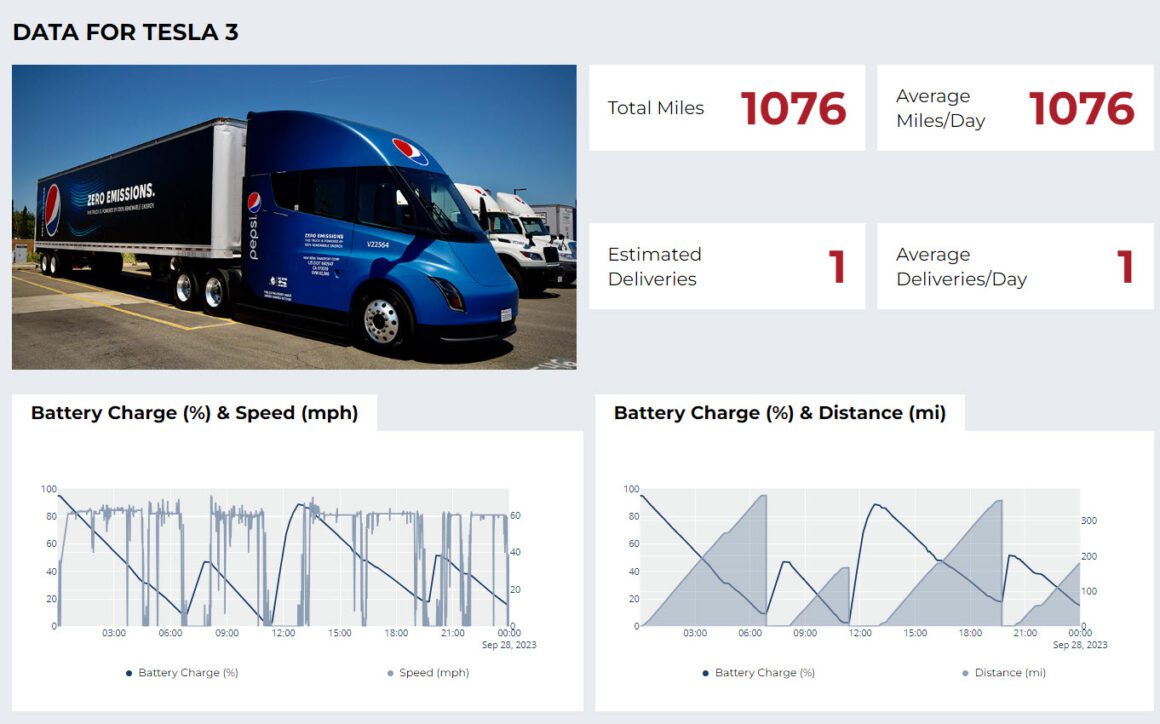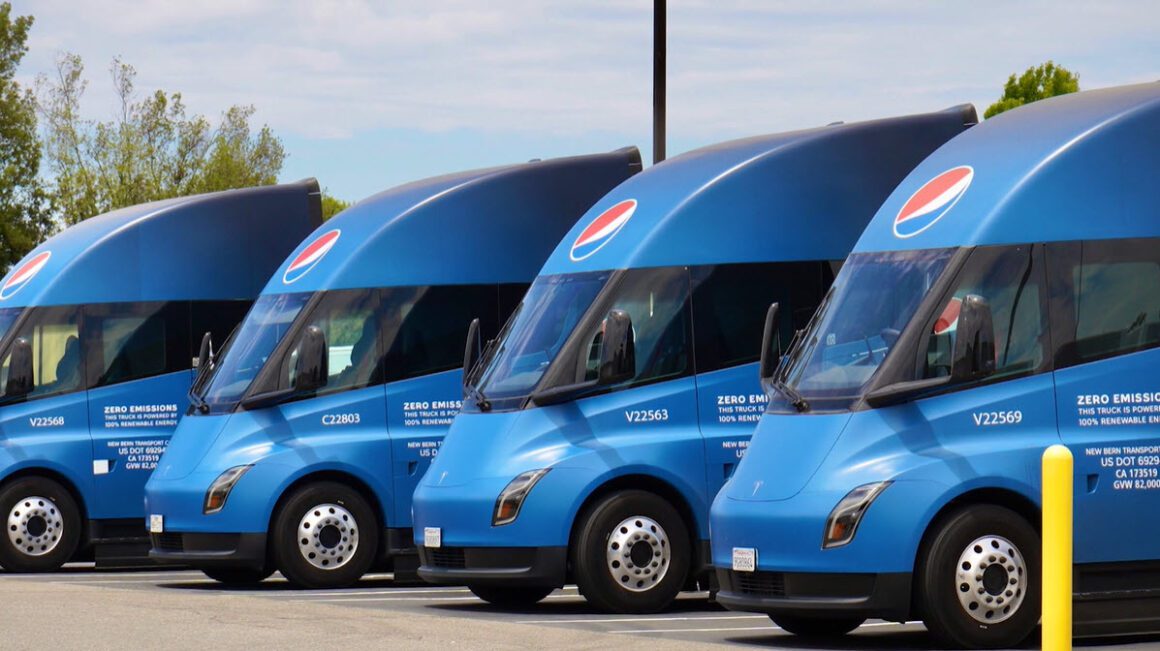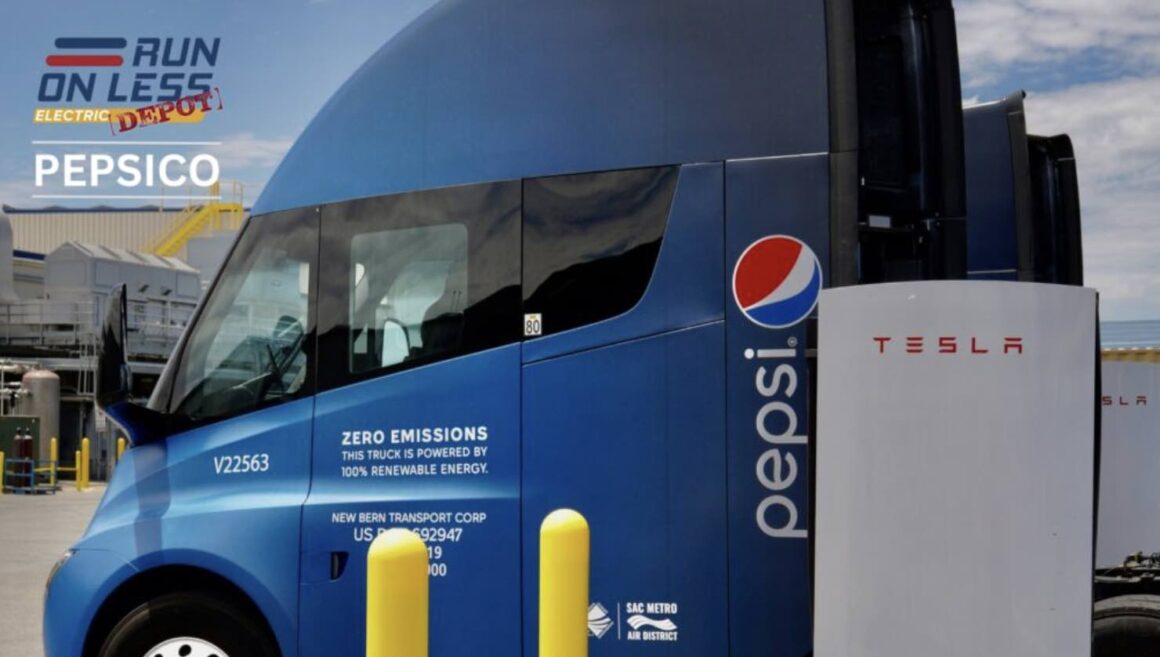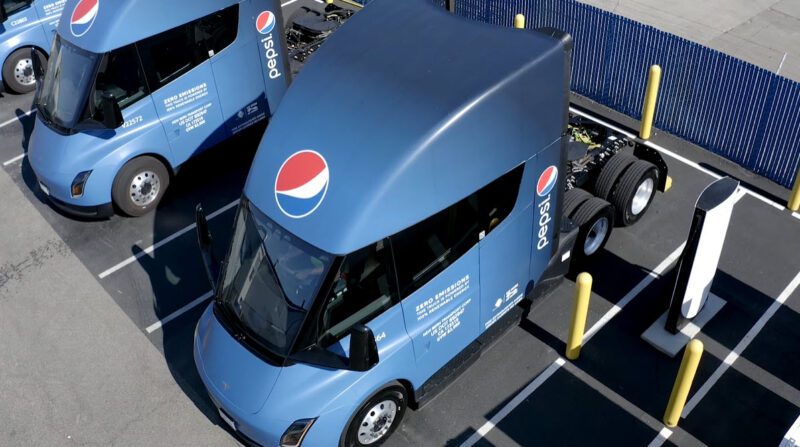Tesla Semi is one of the most innovative products to hit the market in the heavy trucking sector in recent years. It launched last year, and PepsiCo was one of the first big customers, and at the time Tesla made the claim that the Semi was capable of a loaded range of over 800 km on a single charge.
In recent weeks, an independent organisation in the US, the North American Council for Freight Efficiency (NACFE), has been testing the PepsiCo Tesla Semi trucks, along with other electric trucks, in the Run for Less challenge.
One of the highlight of the challenge, which ran for 18 days, was a Tesla Semi that completed 1,732 km (1,076 miles) in a single day.

This is a big achievement since many thought an all-electric full-sized truck couldn’t travel long distances. During the 1,732 km of travel, this Tesla Semi made three charging stops.
Two of these charging stops were under 45 minutes while the third around mid-day lasted for over an hour and got the truck’s 3% state of charge up to nearly 90%.
The truck spent 81.8% of the time driving while charging made up 11.1%. During driving, 92.6% of the driving was done at speeds over 80 km/h (50 miles).
Although the exact load on the day was not shared, the event organisers have previously stated that the average loads during the trial have been around 31.8 tonnes (70,000 lbs).

Other trucks were also part of the challenge and the goal of this event has been to analyse which truck would be able to make the most contribution and have the long-range required to be able to complete logistics in a commercial setting.
The NACFE challenge incorporated not only electric trucks but also commercial electric vehicles from multiple fleets that are delivering goods on real roads with data being collected from each vehicle.
Apart from the Tesla Semis from Pepsico, other electric trucks and vans NACFE tested included:
- Ford E-Transit vans
- GM Brightdrop
- Freightliner Cascadia
- Volvo VNR
Overall, this “Run of Less” challenge was a significant study completed to be able to see how well the Tesla Semi’s driving range could be used in the commercial logistics industry. This study was able to identify the possible advantages and challenges of electric vehicle trucking.

The Tesla Semi was a unique addition to the event but provided the whole trucking industry to see the results of the innovations Tesla has manage to deliver to the heavy transportation sector in the first iteration of the Tesla Semi.
With the opportunity to reduce the impact on the environment and be able to efficiently achieve better outcomes with electric trucks and for the commercial logistics industry, more independent challenges that are transparent will bring confidence to the industry, helping deliver cleaner vehicles sooner.

Riz is the founder of carloop based in Melbourne, specialising in Australian EV data, insight reports and trends. He is a mechanical engineer who spent the first 7 years of his career building transport infrastructure before starting carloop. He has a passion for cars, particularly EVs and wants to help reduce transport emissions in Australia. He currently drives a red Tesla Model 3.

